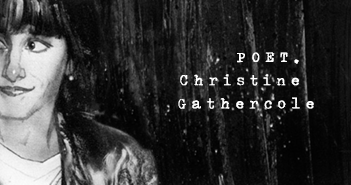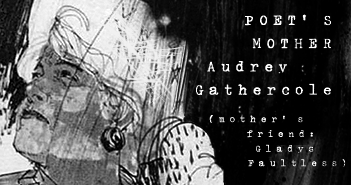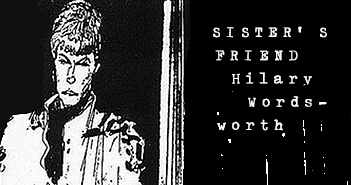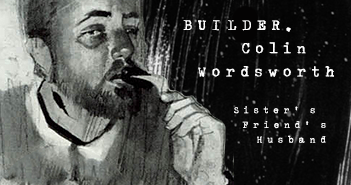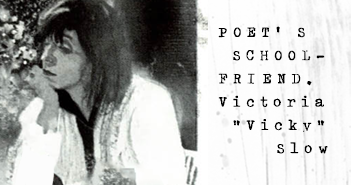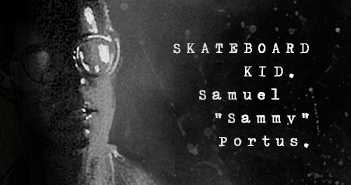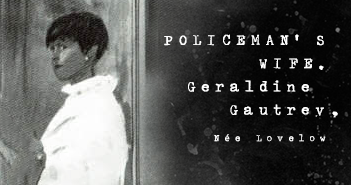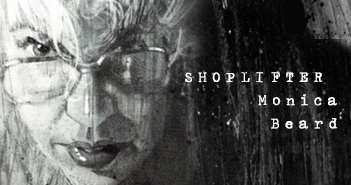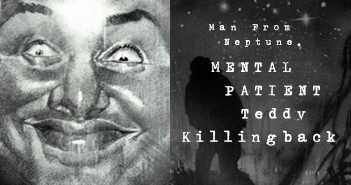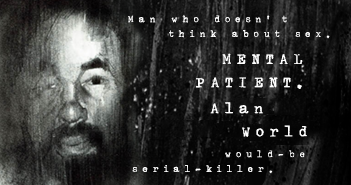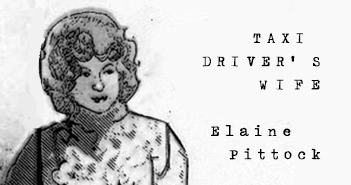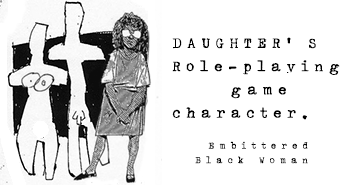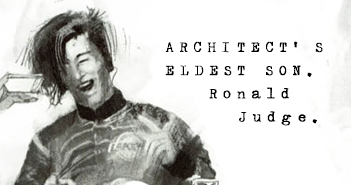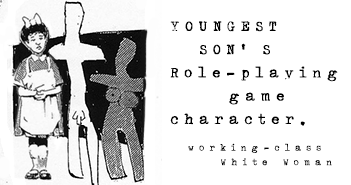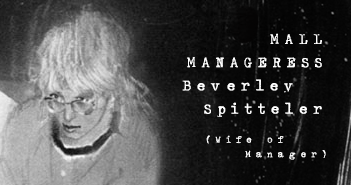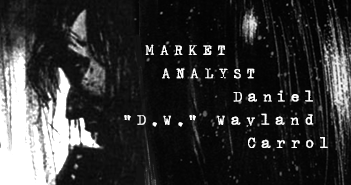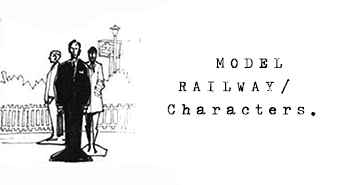 |
 |
 |
 |
 |
 |
 |
 |
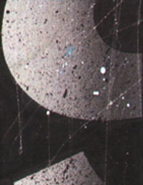 |
 |
 |
 |
|||
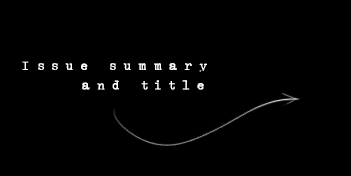 |
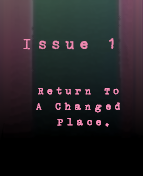 |
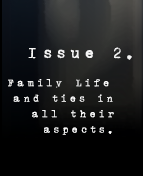 |
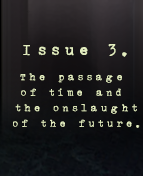 |
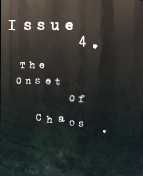 |
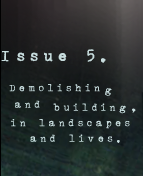 |
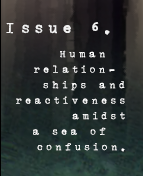 |
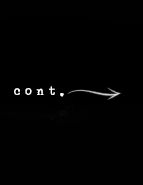 |
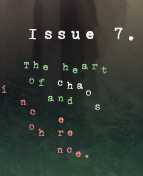 |
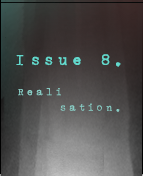 |
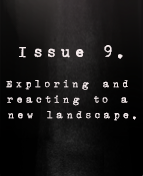 |
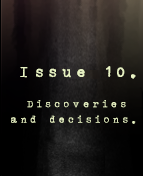 |
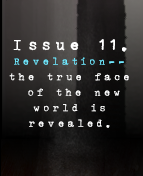 |
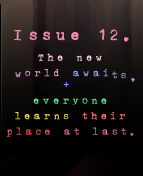 |
|
 |
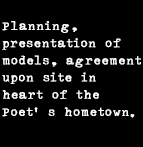 |
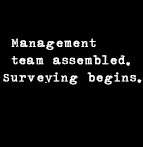 |
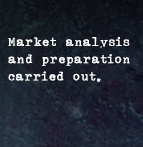 |
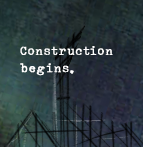 |
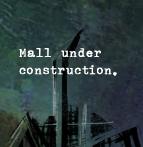 |
 |
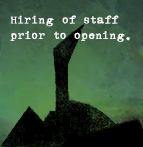 |
 |
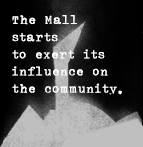 |
 |
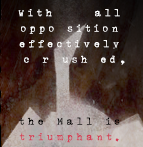 |
 |
||
|
Arrives in hometown by train. Takes taxi to mother + sister's place. Abortion is waiting at station. Phones Father and friends. Reflects upon herself. the town and the dead writer. |
Reflecting on her Abortion, we see her settling back into her relationship with her family, realising that both she and it have changed and reflecting upon the nuclear family in general. Notes. |
Checks out her friends, including old Schoolfriend, and drug associates. Press interview. Abortion playing with friends' kids. Feels varying degrees of distance-- an awareness of how much time has passed. | The interview appears in the paper, and as she realises the mess that people around her are in, she becomes increasingly distressed about future. | Trying to escape the clutches of her depression the Poet throws herself into her writing, but can't do anything satisfying. Playing with her modem, she encounters another person. |
Since her writing isn't working out, we see her throwing herself into a mall protest group, promising a benefit reading. Meanwhile, she's fascinated by the person on her modem unit. | 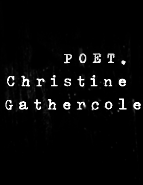 |
Becoming more active in politics and less in writing, she performs her first gig in ages. Meanwhile falling in love with the person on her modem. |
Disillusioned and frightened by the mall opening she is more disturbed and disoriented to learn that the Analyst is her modem lover. | As the mall begins to exert its influence on the community, the Poet explores her relationship with the Analyst, finally realising there's a 3rd party. | Continuine to explore the new world she's found with the Analyst, but it's now a mystery story. This is solved when she realises Kid is 3rd party. Notes. |
With the Kid, she explores the new universe of the
|
Consolidating her strange relationship with the Kid and the Analyst, she sets off with them, remade. They explore a beautiful, dangerous world. |
|
|
Working at the mental home + worried about redundancy after coming home on bus with two discharged patients. Living with Poet's sister and supported emotionally by her friend, welcomes daughter back home. | We see her in relation to the various members of her family, and also to her friend. She thinks about family life as it was. Sometimes, without a family in it, her home feels oppressive. | Being obscurely pestered by the Poet's Father, who wants her back but cannot admit it. The mother thinks back on their relationship. | She is made redundant. We reveal to the reader, if no-one else, that the Mother and her childhood friend have been sleeping together for the past ten years. |
Thinking about getting an old person's flat and vaguely tempted by her ex-husband's offers of security. She has no job, and wants work. | Wanting money to buy a respectable independence for herself, she is tempted to apply for a job at the mall, while being aware that her daughter is anti-mall. | 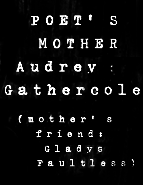 |
As recruitment interviews start at the mall, the mother furtivesly applies for a job there, without her daughter knowing about it. | At the opening, her daughter learnes that she has taken a job at the mall. The Poet doesn't condemn her, but mother feels guilty. | Working at the Mall, she gets a sense of its insidiousness and feels guilty. She also maybe glances ex-husband. | Seeing life at the Mall in all its unfairness the mother finally makes a decision to join the forthcoming protest against the mall. | At the protest she is physically manhandled by the police- only her old friend stands by as she's arrested. |
Being jailed has robbed her of her fear of losing her respectability. Resolutely, bravely and happily, she moves in to live with her old friend. |
|
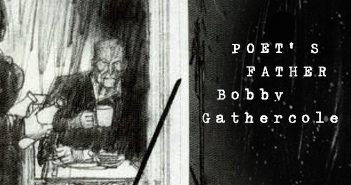 |
Living alone and feigning indepencence. Maybe Poet calls him by phone or calls to see him. He reminisces about Newcastle and his army days. He thinks he's found members of his old unit in a magazine ad. | We realise that he is lonely. The Poet goes to see him, as does the Vicar, and we see more of the charade of independence that he keeps up. He refers to himself as "The Last Man", and talks about army buddies. | We see him, perhaps reminded of the bond with his wife by the return of his daughter, trying to court his wife. She is aware they've been parted too long, he isn't. | The Poet's Father writes a letter to Charles Bronson in which we see his needs and his fears and the cage of loneliness he's built for himself. | Increasingly solicitous towards Mother, but too proud to admit that he needs her. He boasts of his ambitious, hopeless plans for the future. | We see the Father finally visiting one of his old army buddies. Sadly + comically, we realise that they do not know each other even slightly. | 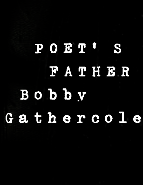 |
It is at this point that he realises that his ex-wife is sleeping with her best friend. It shatters him. | He writes another letter to Charles Bronson, this one embittered and resentful, vowing to get his wife back. |
Visiting the mall for the first time see see him getting an idea of how much bigger the world is than him, and perhaps formulating a scheme to win his wife back. | Intent upon being near to his wife so he can pester her and prove his worth as a bread-winner, he gets a job at the McDonalds. | Sees mother being mauled by police, but is too scared to do anything. Watches in shame as the friend protects her, and knows at last what he truly is. | Revealed as a coward, our last glimpse of the father is a bow-tied busboy at McDonalds, asking if there's any mail for him. | |
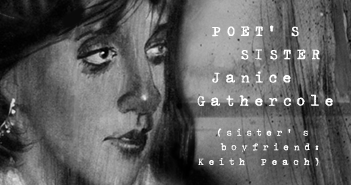 |
Living at home with her mum, working at the D.H.S.S. offices by day and visiting her comatose boyfriend by night, she has the reputation of being an angel. Welcomes sister back. | We see her in the dole office, trying to deal with the mental patients, and also thinking about her relationships with her sister, mother and comatose boyfriend. | Here we see the Sister visiting her boyfriend after a hard day at work and telling him the news, comatose though he may be. | In a dramatic moment, she confesses to the the Poet that she'd intended to break off her relationship with the boy before his accident, and is faithful so as not to look callow. |
She has a bad day at work and is increasingly moody at home. She wants a place of her own, but has little chance of getting one, unmarried. | The Sister is starting to think of marriage as a means to escape, despite not wanting to actually live with anyone, as her job becomes unbearably chaotic. | 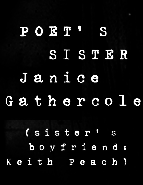 |
Visiting her comatose boyfriend, she pours out all her troubles to him, telling him she's thinking of maybe trying to marry someone. | As her old friend finally gets husband's sick pay sorted out at dole office, Sister manages to call round and visit her. | She goes to visit her friend, along with her slobbish husband, and observes the joys of married life at first hand. Notes. |
Weighing up her options despondantly after seeing her married friend's life, she eventually makes a decision. As yet, we don't know what it is. | We see the Sister apparently contentedly visiting the hospital and arranging for an armchair and a television. | We see her settling into a perfectly now married life in the hospital with her comatose boyfriend. |
|
|
On bus with Mother. Hostile towards Mental Patients but gullibly impressed by an outrageous newpaper story. She lives with her husband and her two school children. | We see her at home with her husband and children, a traditional nuclear family, and see the stark vulgarity of the concept. She hears about the mall from husband. | We see her talking on the doorstep to one of the Analyst's researchers, answering a very detailed questionnaire that gives us lots of information. | Perhaps seen taking thermos and sandwiches to husband as he works on site, or telling children to avoid half-caste Skateboard Kid. | Perhaps seen at dole office trying to sort out Husband's sick pay. She briefly encounters the Poet's Sister and reviews their old school aquaintenceship. | At dole office, still trying to sort out Husband's sick benefit, she witnesses the chaos inbetween talking about married life to Sister. |  |
We see her getting a job at the mall just as her Husband concludes his own employment there. | We see her arranging for Poet's Sister to call round while finalising her husband's sick pay, and also at home with oddly distracted Husband. | Poet's Sister comes to visit, and her friend explains her marriage to her, all the while unaware her husband has AIDS. | Working at the mall, we see her revealing her most smug and unpleasant side. Later, at home, her husband reveals he has AIDS. | Stunned by the news of her Husband's disease and visiting hospital to get a check-up herself, she eventually throws her husband out on the streets. | Despite throwing her Husband out, she is not free from the taint of public suspicion, falling prey to her own Sun Reader values. | |
|
Shouts abuse at Poet from building site. Lives with wife and kids. Is vaguely worried about building work falling off as housing boom ends. Sleeps with pick-ups and prostitutes because his wife won't make love to him. | Has heard about mall from inside information at work. His firm are putting in an advance tender. We see him with his stupid family, revealing this. He has love bites on his neck. |
Perhaps mentioned by wife, if not seen. We learn that his firm has placed a tender with the Mall company that looks promising. | Starts work on site. We get an insight into the minds of building site workers and an introduction to the site. |
Feels ill and has a day off work. Going to hospital for check-up, he encounters the Analyst briefly. English right-wing meeting American right-wing. | Back at work and finishing Mall off, noticing that he has the beginnings of something else wrong with him. | 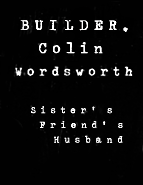 |
We see him at the pub with his mates, drunk and violent. Beats up Rent Boy, and is taken home by Taxi Driver. | Unbeknownst to his wife and maybe also to us, the Builder has recieved the news from the hospital that he has AIDS. |
Sitting watching TV, he turns the fact that he has AIDS over and over in his head, unable to make sense of it, unable to tell anyone about it. | Finally tells his wife that he's got AIDS, after wrestling with the ethical decision to tell her, something unknown to him. | Instead of the support and sympathy he'd expected, the Bricklayer is totally reviled by everyone. In the end, his wife throws him out. | Despised by society and filled with incomphrension and self-pity, we see the bricklayer learning humanity, comforted by the Rent Boy. |
|
|
Maybe Poet calls her. She gives off the impression of being a bright "Shirley Conran"- type superwife, living contentedly with her Teacher Husband. | The phone call from the Poet has triggered reflection and blues. We see her at home with her otherwise-absorbed husband and her two sons. A middle-class nuclear family. | During visit from Poet she realises more acutely the distance that has sprung up between them. Feels there is something missing from her life. | Although she gave up acting to marry and have kids, we see that she is still acting, and that behind her facade there is an empty, aching need for something. | As part of the Mall's construction, the theatre workshop that the Poet's Schoolfriend used to go to is pulled down. Embittered, she watches part of her life go with it. | Decides the vacuum in her life might be filled if she joins a protest group, even though the meeting is chaotic. |  |
Becoming active to give herself a sense of worth, we see her unwittingly canvassing the would-be serial killer. | As the Mall opens, the Poet's Schoolfriend finds herself in a luminous world of wonder, and realises this is what's missing from life. | She starts to shop at the Mall, and starts to fall in love with the process of shopping. Seeing it through her eyes, we understand this. |
She discovers the zipless, nameless sexuality of the malls, and decides by default to abandon herself to it completely. | We start to realise, as she drifts further into her card-paid dreamland, that she's hopelessly in debt. Eventually, the credit police move in and nab her. | After humilation of being nabbed by credit company, she is eventually reconciled- poor but happy with her husband. |
|
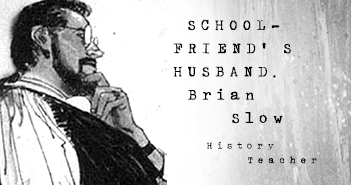 |
Maybe we see Teacher at school, home or both. He seems to be settled and happy with job and family, and absorbed in a local history project. | We see Teacher at home, continuing to engross himself in history without noticing his wife's melancholia. All he seems able to talk about is school work. |
At school, hears about American children due to arrive. At home, Poet's visit reminds him of the old days, and we see what he was. | Welcomes American kids. In his school life we see how politically compromised he is, and how he escapes from a guilty present into a vanished past. |
Increasingly engrossed in his studies of history, he is disturbed to find that history being pulled down around him. Becomes aware of an endless flow of demolition and building. |
Working in history, getting involved in the lives of the people he's studying, while failing to notice his wife's needs- or perhaps noticing and doing nothing. |  |
Absorbed in his schoolwork and history of a particularly chaotic time, perhaps shot through with personal reminiscence. | As the mall opens, the parrellels with his historical researches become harder to avoid. | As everything around him crumbles, becoming strange and new, he uses his history research to anchor himself more deeply in the past. | He discovers, much too late, that his marriage is falling apart. Instead of tackling the problem he decides to retreat back into history. | In between studying history, he meets his ex-star pupil and discovers that he's a rent boy. Finally, he learns his wife has ruined them both financially with credit buying. |
Concluding his history studies at some revelatory point, he manages to rediscover his almost-lost marriage. |
|
|
Maybe we see him skating through b/g, and/or maybe maybe at home with his dad. He has just discovered Mandelbrot's set and seems to be in a daze. | At home and at school, the skateboard kid, still dazed by discovering fractals, hears about the mall from the builder's kids and starts to make plans. | We see him getting a job in a local computer shop that he knows will have a space somewhere in the mall. Impressing both us and the managers with his vast knowledge. | Sell computers to both writer and analyst. Worried about dad. But cold-bloodedly commencing his plot. |
We see him cleverly stealing the gear that he needs from the store, including a modem unit, and setting it up at home. His father is too distracted to notice. | We see him diligently setting up his Mandelbrot programme for the first time, and the social worker getting a glimpse of it. |  |
With his company, we see that he has [eol ??] job in the mall, and perhaps take this as a submission, although it isn't. | We see the kid without being aware what he is doing, as he sets up his brilliant computer fraud. Also in b/g at Poet/Analyst meeting. |
In between bouts of absorbtion in the Mandelbrot Set, the kid is running both his computer fraud and the Poet/Analyst relationship, unknown to anyone. | Keeping out of the way of his father's emotional turbulence, the kid is finally revealed to Poet and Analyst as the third part in their relationship. |
He demonstrates the Mandelbrot Set to the Poet, and explains the idea of fractals to the reader. |
He concludes his fraud, shows Analyst the Mandelbrot Set, consolidates his relationship with them and sets off in search of a new world. |
|
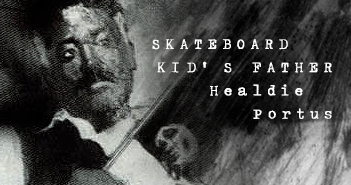 |
Coming home on bus from mental hospital, where he recieves treatment for depression since death of wife. We also see him at home, his son looking after him. | A single parent at home with his son, he thinks about coming to England and his dead wife, imagining what kind of life they might have had together. |
Either seen or mentioned: we learn that he has been assigned a social worker, and that it is a woman, first to enter his house since his wife died. He feels uncomfortable. | It is the first meeting with the Asian Social Worker, and it's a confused, self-conscious disaster. |
Thrown into an unusual emotional state by the Social Worker, he agonises about his slovenliness and resolves to sharpen up for her next visit. | Embarrassing scene in which he is is absurdly overdressed for Social Worker- she laughs and he gets angry, finally spilling his whole story to her. | 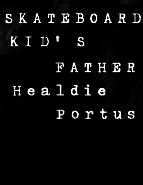 |
Spending more time with Social Worker, understanding her more as she tells him about Uganda and what happened there. | Realising despite himself that he is falling in love with the Social Worker, he plunges into an paroxysm of guilt. | The Vicar calls to see him, ostensibly to help with his depression and emotional problems, but gets sidetracked by the kid and his Mandelbrot set. | The Vicar calls again, in compensation for his previous visit, but is drunk and desolate, more in need of help than Father is. At night, the Asian woman comes to stay. | He consummates his new relationship with the Asian Woman, putting the ghost of his wife to rest as she does the ghost of Uganda. | We see him settling into a happy and fulfilled relationship with his new Asian girlfriend. | |
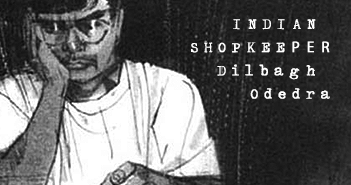 |
We encounter him working in his shop: a happy and contented Thatcherite who believes wholeheartedly in free enterprise. His model train layout is mentioned. | We see him with his wife, a cheerful and contented Thatcherite, upwardly mobile and without children. We see his train layout for the first time. He ignores his wife's sexuality. | When he first hears about mall, we realise he is perturbed despite his faith in free enterprise by the way he throws himself into his model train layout. | Despite self-confident assurances and faith in free enterprise, he watches the mall construction begin with anxiety, thinking about Uganda as he plays with his trains. |
We see him resolutely ignore the threat of the mall by building new extensions onto his train layout as the cheerful world prospers, responding to headlines. | We see the increasing political and emotional conflicts within the shopkeeper, his marriage and his train layout. He feels uneasy as work on the mall concludes. | 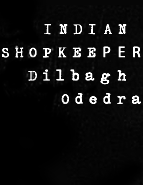 |
His younger brother, who has been helping him with the shop, leaves for a job at the mall. He spends more time with train set. | Absorbed in his train set, he refuses to attend mall opening, and we realise how badly it's affecting him. His wife gives up on him. | To compete with the mall, which is obviously drawing his custom, the asian man throws himself furiously, almost maniacally, into his work. | His manic phase of self-assurance gets worse, until at last he discovers that he has completely driven his wife away. | Unable to sustain his illusorary zeal for free enterprise any longer, the truth starts to dawn on him-- he's alone, and ruined in business by the mall. | Overworking insanely to beat the mall, he finally has a heart attack and [ditches ??] dead over his train layout. |
|
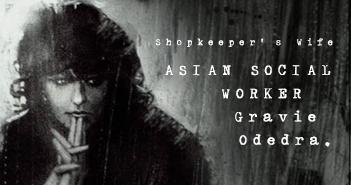 |
We perhaps see her flitting through shop on way to her job as a social worker. She seems a capable and happy woman. Her and her husband left Uganda under Idi Amin. | We see her trying to discuss her job with her husband, and realise the political differences between them. We also sense a sexual and emotional chasm. | At work, she is assigned to the case of the Skateboard Kid's Father, without knowing he is black. She thinks about Uganda, and Idi Amin. | Working with Shoplifter before going to meeting with black man. It is an emotionally upsetting disaster and her husband is no help. |
His wife finds herself thinking about the black man while tending to the Shoplifter, to whom she suggests a "keeper" scheme. | Goes to see black guy, and finds herself moved by his story. Also, she catches a glimpse of the Mandelbrot set, which excites something in her, something new and alien. | 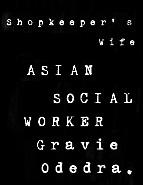 |
Spending more time with the black man, pouring out her Ugandan story, and also being called in to deal with Architect's kids. | Realise that she is falling in love with the black guy, and that she isn't in love with her remote husband any longer. | Trying to avoid the black guy and sort herself out emotionally, she spends more time with the Shoplifter, introducing them to the Architect's Wife. |
In a state of complete emotional turbulence, she decides to leave her husband and then calls up the black man as the only person she can talk to. | Banishing the ghosts of Amin's Uganga, the Shopkeeper's Wife consumates her relationship with the black guy, and is made happy. | We find her settled, blissfully happy with the remade black guy. Her husband no longer means anything to her. | |
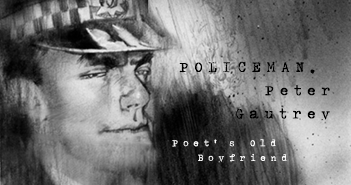 |
We see him dropping by to welcome Shoplifter from prison. He is a beautiful and cruel-looking man. Perhaps he mentions his Wife. | If he see him at all in this issue, it is with his Wife, who wants children. He doesn't, thinking only of his career. Perhaps hints at his past near-brushes with paternity. | We see him at home with his Wife and Father-In-Law, ignoring his spouse while his dad-in-law offers him entry into the masons. | There is a chance meeting with the Poet. This is the first time we realise that he is her old boyfriend, and how badly her world has gone awry. |
Socializing only with other policemen and their families, he talks about building a better Britain while ignoring his Wife's eccentricity. | We see him attempting to deal with manifestations of chaos in the town, and also maybe taking time out to renew his warning to the Shoplifter, who he finds hanging out near the Mall. | 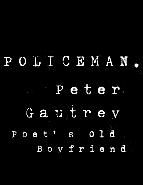 |
The chaos in town is getting worse and perhaps we see the Policeman checking out the Poet's protest gig, scathingly. |
At the opening he notices for the first time how efficient Mall security is, and wonders about the future of the police force. | Increasingly eager to prove his worth against that of the Mall security people, he works strenuously, while remaining contemptuous of his Wife. | We see him in connection with the Rent Boy's bust, and also calculatedly setting up his Mall protest triumph with the local press. | He works hard smashing the Mall protest, but his moment of triumph is spoiled by the realization that his wife is insane. | Father-In-Law and masons don't want to know. While interrogating Manageress he learns he's being transferred. They're too cold to console each other. The attempt is rather sad. Notes. |
|
|
Possibly mentioned, but not seen yet, this woman is kept at home like the beautiful ornament she is. Her father is the Farmer who owns the mall land. | If seen at all, it is with her husband, vainly trying to overcome his objection to children by appealing to the idea of family. We see he only married her for her father. | With husband and father, we see her being completely overlooked and starting to get the impression that there's a conspiracy against her. | Husband bad tempered after his meeting with the Poet. From her reactions we start to realise there's something wrong with her mind. | Perhaps we see her at a social gathering with other police families, not getting a conventional look-in. She grows increasingly eccentric, but no-one notices. | We see her at home, cleaning and being anxious, perhaps even starting to talk to things more as she gets lonelier. | 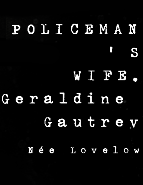 |
Offered a chance to go to the mall opening with her father, she leps at it, anxious to be free of her perfect home/prison. | At the mall opening, she realises with horror that the whole world is like her beautiful empty prison of a home. | She has a frightening and perhaps violent confrontation with her contemptuous husband that leaves her more alone and trapped than ever. Slowly, she's cracking. | Trapped at home, she finally decides to let go of sanity completely, and finda a whole new world where the furniture can talk to her. |
She realises that letting go of sanity has brought her more love and attention than anything else, and she finds the lost world of her childhood in father's arms. | Totally crazy, she is whisked off by her father to an exclusive sanitarium somewhere in the world that her husband always refused to take her. | |
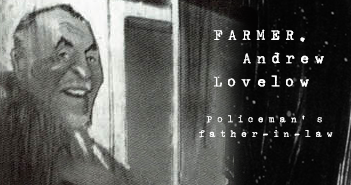 |
We see the Farmer making a deal, in real time or in flashback; getting tip-off from local councillor about Mall deal. He perhaps mentions his beloved daughter. Notes. |
Seen or spoken of in connection with clinching of mall deal and with newly assembled mall management team, minus Analyst. Again, refers to his daughter. | With daughter and son-in-law, reflecting sentimentally upon the past, while offering entry into the masons to the Policeman. | As construction begins, we see him wandering around the skeletal site, thinking about his own father, a real country-lover and feeling guilt pangs. Notes. |
In the golf course bar we perhaps see him talking to the Councillor, worried in case their illicit deal should leak to the public. | As work ends, the Farmer goes to look at the completed site and encounters the Man From Neptune. For a moment, there is a sort of cameraderie there. | 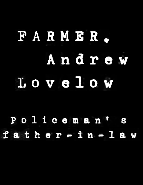 |
With daughter, offering to take her to the Mall opening in a belated and misguided attempt to compensate for her miserable childhood. | With his daughter at the Mall opening he looks at the McDonalds and is disturbed by the mass-farming it represents. | He learns obliquely of his daughter's unhappiness, or at least suspects it, but is too busy to do anything about it, or maybe doesn't know how to help. | Decides that he really ought to intervene in his daughter's marital misery, but is unable to contact her. She isn't answering the phone. | Realises that his daughter is crazy, and while he rightfully vents his rage on the Policeman, somewhere inside he knows he is just as much to blame. | Faced by the wreckage of his daughter's life and his own complicity, he decides to confess the whole Mall deal to the papers. | |
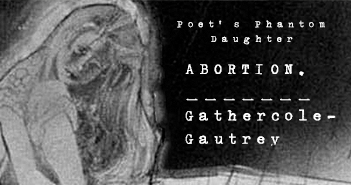 |
She is waiting on the platform for her mother when she arrives in town. A girl of about ten of twelve, she appears to have inherited her mother's disposition and leanings. | Poet thinks about when she had the Abortion, and thinks of the Abortion as a phantom member of her family group. | Visiting the Poet's friends, we see the Abortion trying to join in with their children's games, but being unable to do so, looking melancholy. | After the meeting with her father, the Abortion seems withdrawn, worryingly moody, silent and resentful. |
In the Poet's imagination we see the daughter trying out different roles in light of discovering her father's occupation. | In the Poet's imagination, the Abortion sulks and starts to describe the protest group as silly, taking her father's side more and more, politically speaking. | 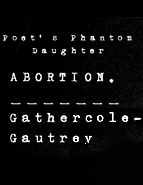 |
Contemptuous of mother's relationship and poetry gig, she perhaps glimpses her father again, and is excited by this. She grows more like him every day. | Rejecting her mother's values, we see the Abortion opting to hang out in the mall with the mall rats. |
The Abortion is spending less and less time with her mother and is now only glimpsed furtively, running with the mall rats. | Perhaps she is still glimpsed in the mall, and we see her making a clumsy attempt to finally say goodbye to her mother. She's decided to leave. | The Abortion is nowhere to be seen, having gone AWOL. Absurdly, and poignantly, her mother worries about whether something's happened to her. | We see the abortion following her lonely father as he walks away. She's decided he has custody now. |
|
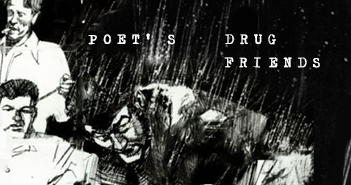 |
Either glimpsed in passing on the streets or merely referred to, they hang grimly in their old ways, but are losing ground fast. Notes. |
Perhaps Poet calls them to arrange some dope. Their lives + family circumstances are fragile and tenuous. Maybe they witness surveying. | Meet with Poet, and there is a sense of mutual awkwardness. The are so different, and their past is the only link between them. They talk about it. | Though the construction work maybe offers employment to some of them, things continue to looks meaner and meaner. | Life continues to stumble from disaster to diasaster and the hope of work in building the mall gradually evaporates. | Some elect to join protest group while others refuse, still hoping for work there. They cling together and need each other as things get chilly. |  |
Some get jobs in the mall, while some refuse to "collaborate". Meanwhile, life is made tougher and tougher for them. | At the mall opening, they finally realise that poor people aren't allowed in. They are disqualified from the town's future. | Many of them turn their energies on protests against the mall, trying to cope with the strange new territory they're suddenly in. | The scene is starting to come to a head, collapsing around them, and the mall becomes a focus for their hatred. | At the protest, all of society's cards are laid on the table as the police move in to crush the demonstrators. The new order stands brutally revealed. | We see, from the ruins of their culture, a green pound economy springing up, introduced by the children. | |
|
Released from jail, the habitual Shoplifter is 'welcomed' back to society by the Policeman, who issues a warning. The Shoplifter who's been away for a while tries to readjust to society. | Either seen or mentioned by Asian woman, the Shoplifter has been assigned the Asian woman as a social worker to welcome her back into society's bosom. | We see the Shoplifter, perhaps in the background, getting back into a regime of casual kleptomania, looking quite happy. | Meets Social Worker and shoplifts under her nose, sure of her retained skills. Nonetheless, the Mall suggests frightening change. | Worried about the Mall and what it represents about a change in lifestyle, the Shoplifter feels ambiguous about the proposed keeper scheme. | Out at the mall, checking it out anxiously, the Shoplifter meets the Policeman and has the facts of life explained regarding Mall security. We see relationship of law and crime. |  |
The Shoplifter tries, pathetically, to get a job at the Mall, but the Shoplifter's record gets in the way, barring them from Mall forever. | At the Mall opening, the Shoplifter tries to steal something, but can't. Realises Mall security is unbeatable. | Is taken to visit Architect's Wife, her "keeper" for the first time, and is anxious about the new life this will entail. | In her first meetings with her keeper, the Architect's Wife, the Shoplifter discovers that they have a lot in common. | During the protests, the Shoplifter takes the Architect's Wife shop-lifting, and discovers she's a natural. |
With the Architect's wife giving inside information, the Shoplifter co-runs a perfectly adapted hi-tech shoplifting ring. | |
|
Is discharged from the local psychiatric hospital due to cutbacks. We see him on the bus with Poet's Mother. He too is readjusting to society after time away. | Meets sister in dole office, and we fill out his quirky personality. At end of story, he is chief witness to the arrival of the surveyors, recognising them as his own Neptunian kin. | Wandering around the neighbourhood, we seehim chatting to various people, including the market analyst. People mention him, laughing at his mannerisms. | Wandering the building site by night and thinking of the arrival of his fellow Neptunians, we realise about his Burma Road experiences for the first time. | Perhaps seen at dole office, or glimpsed in backgrounds, wandering the streets around the mall site. | Out at the mall site as work concludes, he meets the Farmer, and for a couple of moments they are on the same wavelength. | 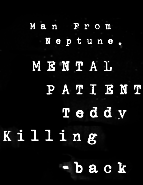 |
We see the Man From Neptune confidently applying for a job at the mall. They don't realise he is mad. They just think he's English. | We learn, to our surprise, that he has got the job that he applied for, and seems accepted by the mall staff. | We see him working at the mall, behaving oddly. For a start, he cancels all orders for Japanese equipment, much to everyone's consternation. | When his employers discover that cutting out Japanese goods works fine economically, they decide he is worthy of marking for promotion. | During the protests, he shouts 'go back to Saturn' at the demonstrators. The staff, taking this as some English colloquialism, join in enthusiastically. | Now in a key position, as the sated Mall looks for new growth areas, he suggests Japan. Mall management agrees. | |
|
Discharged from hospital and seen on bus, as above, perhaps, blandly discussing his recent chemical castration. We do not realise that he is channelling his... [illegible] | Takes taxi to dole. Meets Sister in dole office, and perhaps discusses his own early life as an abused child. We realise that in his mind he is psychotically violent. | We see him talking to doorstep analyst-researcher, thinking about ways to kill her while she answers his questions. The researcher has no idea that she is in danger. | He comes across the writer's picture in the newspaper features, realises that she is famous and local and clips the picture out. | We see him talking to the Vicar, who remains completely unaware of the potential homicidal nature of his charge, despite being shown the... [illegible] |
At dole office, perhaps we see him talking to Sister's Friend. He is talking about something big that he plans to do soon. | 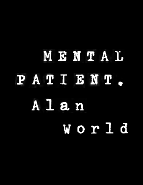 |
We see him being lobbied on the door stop by the Poet's High School Friend, who doesn't realise... [illegible] | Finally, at the opening, the would-be serial killer sees the Poet for the first time... [illegible] | He finally manages to make his way to the Poet's house. We see him just waiting... [illegible] | Working out his plans in hideously unpleasant detail, he decades where and when and how he... [illegible] | Crossing the road and about to strangle the Poet, he is run over and killed by the Taxi Driver... [illegible] | Perhaps we read of his unattended funeral in the paper... [illegible] | |
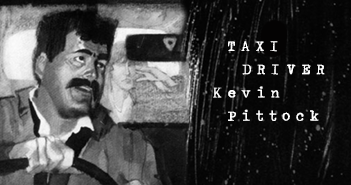 |
Gives Poet a lift to the station, talking all the way, hinting obliquely about something he doesn't want to talk about in his past. Mentioning his Wife and his desire to be on a taxi rank. | We see him delivering the Man From Neptune to the dole office, explaining his ideas of man as the natural breadwinner. | We see him alone with his Wife, welcoming his new American neighbours, Their reaction to him is ambivilent as he reiterates his various misfortunes to their incomprehension. | Perhaps in conversation with new neighbours, we are told for the first time that it was he who put the boyfriend in a coma. | Applies for Hackney license, hoping to build a new life and put the tragedy of the accident that haunts him into the past. | Perhaps seen taking the historian's wife to the protest meeting, spouting right-wing politics and assuming that her politics match his own. |  |
We see him taking the drunken Builder and his mates home through the chaos that is town by night, [alone ??] he gets a rank job. | Hears that he's been granted a place on the Mall's taxi rank and is ecstatic, frantically [??] rushing to tell wife the good news. | Busy flitting around the mall, we see how happy he appears to be with his increased workload, exuding confidence and cheerfulness. | We see him busily working around the mall, his carefree happiness increasing in direct proportion to Wife's misery. The accident is finally behind him. | The taxi driver in the height of his euphoria over his new job, runs over the would-be serial killer and kills him, cracking up [irreparably ??]. | His nerve broken, the Taxi Driver has to stay at home looking after the new baby, as a house-father. | |
|
Mentioned but not seen unless in background. She lives on the posh estate in a "valley of the lost women", and visits her bored neighbours. She wants a job, but her husband says no. | Mentioned by Taxi Driver, but not seen. He speaks of her as someone who knows her place and is happy where she is. She is pregnant. | Seen for the first time as she is introduced to the couple next door. We realise that to them she is an alien creature. | Talking to the American woman next door, we realise that her husband's neurosis about his misery has put her in a coma too, paralysing her life. | We see her either in the background or talking to the American woman next door, perhaps describing the poorer estate. | If we see her at all she is at home watching a soap opera, getting vicarious delight from the warm interaction of the characters. | 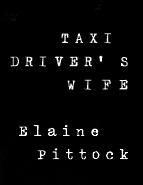 |
Is almost delighted when he comes home ragged, worn out and on the verge of quitting. Maybe he'll quit and she needn't be lonely so much. | Though putting a brave face on it for her husband and feigning happiness, she is despondent. He'll be away more than ever now. | She goes to the Mall, perhaps vainly trying to share her husband's enthusiasm for it, but she doesn't like it. It represents everything she can't have. | Her misery deepens, but she can see no way out of it without destroying her husband's newfound happiness, which she is loathe to do. She has her baby. |
When her husband is brought home sobbing and broken, the wife reacts with an unusual amount of cheerfulness. | The wife now needs to be the breadwinner, taking over her husband's job on the rank. We see her poised on brink of new career. | |
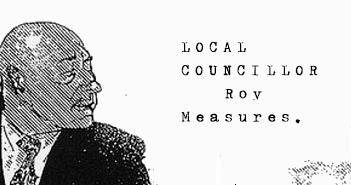 |
Seen, either in flashback or real time arranging Mall deal and tipping off Farmer at golf club. Otherwise, he is only mentioned in news items and conversation. | Either seen or mentioned in connection with leaking information about Mall. | We see the Councillor meeting the Mall team as they arrive in this country, perhaps posing for them in local newspaper photographs. | From the circulation of rumour and innuendo, we see that there is suspicion about the Councillor's insider dealing. | Perhaps seen at golf club with Farmer, discussing the scandal that the both must prevent from breaking. | Meeting with prtoest group at chaotic meeting and immediately getting everyone's backs up. Awkward questions are put about illicit deals. | 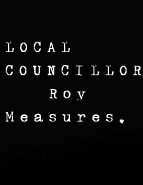 |
An enquiry is proposed by someone else on the council in response to the local furore drummed up by the protestors. | At the opening, the Councillor is filled with a religious awe for the grandeur and rightness of his vision. Nothing can topple him. | We either see him or hear of him in connection with the deft nobbling (??) of the councillor who is backing the enquiry. | We perhaps only hear from the Councillor referred to in this episode, talking confidently about his projected success. | Either seen or talked about, the Councillor is triumphant in quelling the enquiry, proving his view of the world. | Either seen or by implication, we realise that the Farmer's revelations will scupper the Councillor utterly. | |
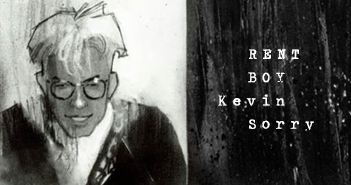 |
Glimpsed in background as Poet arrives, hanging out with his rent boy friends. Cleverer than them. He is bored, ironic and jaded, cynically detached. | Seen at dole offices, trying to claim his dole from the Poet's Sister. We make it clear that his parents threw him out of home. | Is seen in background at pub where Poet meets her friends with other rent boys trying to score. This new phenomenon is remarked upon by Poet. | In an accidental encounter he meets the Mall Manager for the first time, and we see the incident has somehow breached his indifference. |
We see him taking advantage of the mall construction by plying his trade with the construction workers, [aggravating ??] to Vicar. |
Meets with American again, this time on purpose, and although nothing sexual happens, we realise there is something there. | 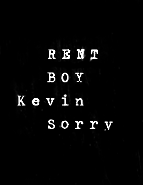 |
Gets queerbashed by Builder and friends, just as a general part of the broader oppressions in his life. | Either after or during the mall opening, the Rent Boy sleeps with the Mall Manager for the first time. We learn he has AIDS. |
We see him perhaps combining spending time with his new American lover with just generally checking out the mall as a new place of trade. | The Rent Boy gets busted, during which time he realising how much he has come to love the American, who eventually bails him out discreetly. | After meeting his old History Teacher, he spends a poignant evening with the American, who tells him that their affair is ended, and he's leaving. | The Rent Boy has fallen in love. Cruelly, he has something to live for. Wryly ironic and sad, he comforts the pissed, weeping Bricklayer. Thinks of his lover, now [exeunt ??]. | |
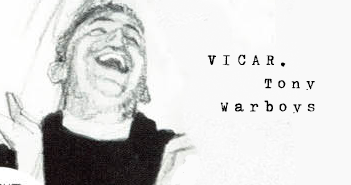 |
We see the Vicar tending to his flock, perhaps cheerfully encouraging the Shoplifter, seeing himself as more than just a good listener, and reaffirming Christianity. | Seen visiting Poet's Father and getting an unsettlingly vociferous reaction. This doesn't increase his faith in human spirituality. | Perhaps seen at hospital sharing a few supportive words and words of praise to Sister as she visits her comatose boyfriend. | As construction begins, the already discouraged Vicar realises that the Mall will cut out the light from his lovely vicarage. |
We see him talking to the Rent Boy and the Would-Be Serial Killer, absurdly trying to bolster his faith in God's plan. | Seeing the finished Mall, he realises that it will have an in-mall church. His cheerfulness about it evaporates, and he tries to befriend protestors. |  |
As the Mall starts taking on staff, the Vicar is increasingly despondent and worried about the future, his faith falling. | At the opening, the Vicar sees the in-mall church in all its glory and understands that it will take his flock away. | Ostensibly visiting the black guy to sort out his problems, the Vicar is sidetracked be the Kid and his Mandlebrot Set. Its implications badly shake his faith. |
Calling on black guy in a drunken state, confesses all his doubts and fears, eventually revealing he's decided to quit the clergy. | The Vicar, signing onto the dole, comes to realise what a harsh world it is when he finds he can't get a job as a social worker. | The Vicar finally finds a place for himself in the green pound economy. People only want him to listen but, ultimately, that's enough. |
|
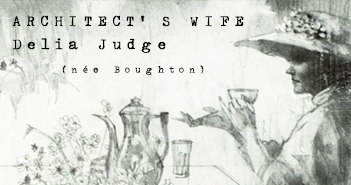 |
Mentioned but not seen, it is clear that the Architect sees his Wife as an ornament to his already-lavish C.V. She's apparently looking forward to returning to England. |
Introduced to rest of mall team along with Architect and kids, although the Architect doesn't allow her very much to say. We sense she's intelligent, but trampled. | Arriving back in England, slowly it dawns upon her that she has been away too long, and that England is as foreign as America now. | Rediscovering England, she realises that it is poisoned. She wonders about raising her children as English kids, and what her place in society is. | As the behaviour of her kids gets worse she has a sense that the mall's construction mirrors the demolition of her own family life. | The kids' behaviour is becoming increasingly fraught + disturbing. She tries reaching out but to no avail. Her husband isn't there. | 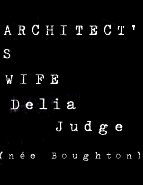 |
At wits' end, she calls in the Social Worker to help her deal with her near berserk children. Social Worker seems more worried about her.
|
Athough alarmed when the "keeper" scheme is suggested to her, she accepts. Anything to to take her mind off her home life. |
The Asian Social Worker brings the Shoplifter round, introducing her charge to her for the first time. She is apprehensive about the set-up; both women are so different. | Meeting with the Shoplifter, not without some trepidation, she discovers that they have much in common, despite their obvious differences. | Taken shoplifting by the Shoplifter and discovering a natural aptitude, she understands finally that one must simply take the life one wants. |
As a key figure in the Shoplifter's new crime ring, she has a thrilling new life. Husband doesn't suspect a thing, and she still... [illegible]. | |
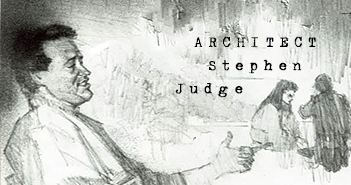 |
Seen working with Mall chain owners, assembling and demonstrating his vision of the Mall. He mentions his Wife and children in the same breath as his other possessions and achievements. |
Introduced to rest of Mall team, minus Analyst. He wears his family like a badge, and is given the "Real Life" role-playing game for his kids. | Arrives in England with his family, full of inappropriate breeziness, anxious to see his vision of the future made concrete for the whole town. | Blithely supervising the construction of the Mall, he improses his vision without regard for the town's wellbeing just as with his family. | At work, he has turbulence problems with his materials, but doesn't notice the turbulence in his home life. | Is at the protest meeting, which is chaotic. He appears unpeturbed about the problems his wife is having. |  |
When a Social Worker is called in to deal with his children, the Architect's reaction is to blame the Wife, since she's been responsible. | At the Mall, the Architect's pride in his vision is somewhat dulled by the reality, and the realization that he's now out of a job. |
He more or less barricades himself away from his wife and her visitors, engrossed in scouting out a new contract for himself. | After some slight misgivings about how it jibes with his stated creative ethics, the Architect decides to help design new prisons. | Working on preparatory models of prison while other members of his family, unnoticed by him, also prepare for prison in slightly different ways. | The Architect, well-[??] his prison models, poses with his model family, unaware of the things that motivate [them ??] for a promotional... [illegible]. | |
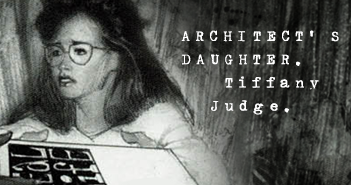 |
Mentioned but not seen, a bright and promising career-minded daddy's girl of around thirteen years old. | Introduced aas part of Architect's ornamental family. Of the three children she looks most self-conscious about proceedings. | The children, freshly arrived in England, begin to play their new role-playing game. The eldest daughter rolls a Black Woman character. | Settling into school the eldest daughter realises how strange and new it is. Playing the game, plus meeting school friends, she starts to understand poverty. | Preoccupied with the game and also looking at her mother, she forms an impression of her mother as a sort of whore. | Reacts in horror and anger to her older brother's callousness in the game, becoming physically violent with him in real life. | 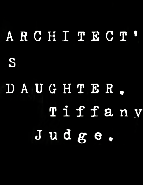 |
Talking with the Social Worker, we begin to realize how much the game is taking over as she talks to her "black woman to black woman". |
Declares war on her brother. At the opening, she sees some of the black youths, and is attached to them. | Her brother snitches on her to her parents, maybe about the possession of a small amount of grass supplied by the black youths. | Decides that she has no other choice other than to war against her brother's values as strenuously as she can. | Her identification with her role-playing persona becoming total, the Architect's eldest Daughter decides to rebel against all her parents' values. | Absorbing the discarded role-playing persona into her own, she starts hanging around seriously with black activists, a Bobby Seale and [Blondie??]. | |
|
"Real Life" Game is given to children. | A Black Woman character is rolled in poor circumstances. Convinced that anyone can do well if they work hard, Daughter makes best of it. |
The Black Woman, growing up, recieves crushing social rejections, realizing grimly the crushing harshness of her situation. | Pressurized economically and socially to a point beyond endurance, the Black Woman turns to prostitution. | Offering support to the White Working Woman who has had a breakdown, the Black Woman learns she is pregnant. | 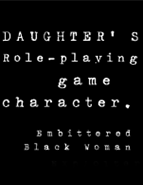 |
Raising her baby and helping support the White Woman, we see the beginnings of a hard political resentment. | Becoming politically active, the Black Woman tries to get the White Woman to claim compensiation from her employer. | In an attempt by the corrupt white boss to remove her support from the Working White Woman, she is busted on trumped-up charges and her child taken into care. | She makes a last desperate attempt to rouse the White Woman against her boss, which looks like it might work. | Just when it looks like her plan to emancipate the White Woman is going to work, the boss turns the tables. Enraged, her creator quits the game. | The character has been completely absorbed into her creator. The brother writes her out of the continuing game with a spiteful nastiness. | ||
|
Mentioned but not seen. the son is a competitive boy of twelve, especially with his slightly older sister. He is into heavy punk + metal and strikes anti-authority poses. | Introduced with rest of family. Protests in a pseudo-liberal tone but is impressed by the conspicuous wealth. Is over-awed recieving "Real Life". | Starting to play the game, the Eldest Son cheats and lies about his dice total in order to get a more privileged character than his sister or younger brother. | Settling into school, he finds his American hardcore posturing cuts little ice. Realizing how hard and strange this new world is without status he becomes frightened of it. | Looking at his mother and father while preoccupied with the game, he concludes that his father could have done better for himself. | After being a real bastard in the game, the Eldest Son gets into a violent row with the Daughter and is only saved by younger boy's frightening tantrum. |  |
Talking with the Social Worker, he is manipulative and evasive, playing down the incident. He doesn't like Asians. | Declares war on sister. At the Mall opening he sees very clearly that there are two sorts of people, and if you don't rule you will be ruled. | He snitches upon his sister to his parents about the grass, which he has only recently given up himself, getting more absorbed in [power ??] games. | Discovering his true nature through the game, the son decides that his sister's values must be resisted and crushed. | Managing to beat his sister in their struggle for his younger brother's loyalty, the eldest son sees his yuppie vision of the world confirmed by the game. | Still flushed with triumph, the Eldest Son becomes incredibly abusive in his relationship with his younger brother. There's something creepy about it. | |
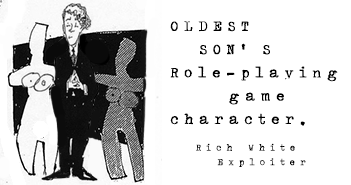 |
"Real Life" Game is given to children. | The character rolled is a privileged white boy... or so the Eldest Son claims when challenged by his sister. He gets a good start in the game. |
His character, while the black woman endures hardship, makes a clear decision to look after number one, and win the game. | His character, as a [???] to social advancement, marries rich, continuing to get on famously in life. | Fires the White Woman because she's missing time through stress-related illness, bringing on her breakdown. | 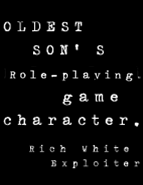 |
To reduce stress points, his character takes a mistress, and continues his deceptive dealings. | Under siege, the white businessman finds that his wife is divorcing him just as the Black Woman starts causing trouble. | The rich employer pulls strings with his policeman friends to have the Black Woman harrassed and thus neutralised. | The rich employer struggles even more viciously in his attempts to win over the White Woman, even offering her job back. | After being on the verge of being successfully sued, the boss finally proposes marriage to the White Woman as a final way to buy her off. | Married to the Working Woman, the boss celebrates his triumph by being extra cruel and abusive to his younger brother. | ||
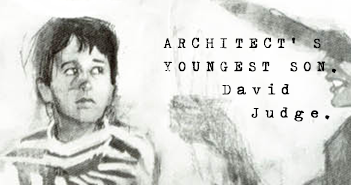 |
A shy and likeable boy who is mentioned but not seen, except perhaps in photographs. Dominated by his older siblings, he is a gentle, poetic child. | Introduced with rest of family, not daring to assert himself before sister + brother, but asking insightful, gentle questions to everyone. | More fascinated by his new country than the other children, he nonetheless plays the game- there is much hilarity when he rolls a female character. | Timid about his new surroundings. but with a naive curiosity that accepts without placing values. Kids are spiteful, which makes him feel at home. | We see him helping his mother around the house, cutely feminine in his manner. | The miserable events of his game character are less instrumental than the misery of family life in bringing on his awful tantrum. | 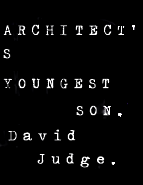 |
Shy and fairly quiet when asked by Social Worker about his tantrums. He seems embarrassed about the whole episode. | Withdrawn and embarrassed, at the Mall opening we see him looking at the clothes in the dress shops, but only in B/G. | We see the youngest son growing increasingly uncertain of his loyalties in the family power struggle. He prefers his sister, but is scared of his brother. | Confused and torn between sister and brother, we see the younger son trying on his mother's clothing. | Ashamedly and apologetically, after an early show of strength. the youngest son decides, through fear and insecurity, to side with his predatory brother. | The young brother, silent and introverted, seems totally crushed and in thrall to his older sibling, but there's a scary resentment there. | |
|
"Real Life" Game is given to children. | Youngest Son rolls a White Working-Class girl with no money and not much intelligence. He imagines her as very pretty. |
The Working Woman, with her low expectations and low ambitions, gets a lowly paid job, dully optimistic despite the catastrophes around her. | The Working Woman neither wins nor loses, but seems quite content to stay where she is in life. | Fired by her boss for taking too much time off sick, the working woman has a complete nervous breakdown. | 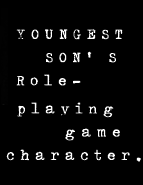 |
Ministered to by the Black Woman, the White Woman slowly recuperates from her breakdown. | Confused and uncertain, the White Woman tries to decide whether she should sue her boss as the Black Woman urges, or not. | Floundering without the Black Woman's support, the White Woman nontheless looks like she's going to go ahead and sue her boss. | The White Woman, encouraged by the Black Woman, is even even strong enough to resist the offer of her old job, though tempted. | On the verge of militant action, the White Woman finally agrees to marry her boss, accepting the hollow comfort he offers to her, uneasily. | Her stress points increased by her husband's brutality, the game offers several options to relieve this. One of them is the murder of her husband. | ||
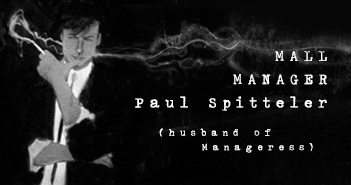 |
Mentioned but not seen, we are given the impression of a quiet and dependable man who gets the job done, maintaining an admirable emotional detachment. | Introduced to rest of Mall team, minus analyst. He seems to confirm his superiors' assessment of him, but there is a slight air of anxiety that he carries. | Arrives in England and is shown to new home, meeting new neighbours in the process. Like his Wife, he is alarmed by England's strangeness. | Out at night, looking round the town, he meets the Rent Boy in an accidental encounter. Disturbing, the incident awakes something in him. |
Finds himself thinking more and more about innocent encounter with Rent Boy. Becomes aware of a neglected emotional self that needs building up. | Haunted by the Rent Boy, he deliberately seeks him out, wanting to see him again. Nothing much happens, but there's something there. | 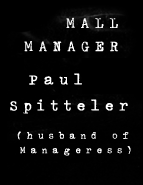 |
Still haunted by erotic obsession with the Rent Boy he interviews potential staff, each weirder than the last, and finds things sliding out of control. | Either after the Mall opening or during it, the manager consummates his relationship with the Rent Boy, learning he has AIDS. | He is spending more and more time with the Rent Boy, exploring this new world, while having less to do with the Mall. | The Mall work seems incomprehensible to him. When called on the bail out the Rent Boy, he realises how deeply he's involved with something dangerous to his career. | Seeing the Rent Boy, he breaks it to him gently that he's decided to end the affair and go back to America. He understands England, and is scared of how it will change him. | Going back to America having narrowly avoided being implicated with wife, he realises that he's escaping too late. England has left a mark on him that will stay with him forever. | |
|
Mentioned but not seen, we are given the impression of a capable but refreshingly innocent girl who charms everyone she meets. | Introduced to rest of team. Her innocence is dazzling, and takes in everyone except for the Architect's children. | Arrives in England and meeting the neighbours, we see a little more of her with her husband and realise there is more to her than innocence. | Setting up home on the estate, with fire-bombings a regular thing and her neighbour recounting strange stories, she starts to understand that England's a 3rd world nation. | At home, we see her increasingly at odds with England and vowing to dominate this strange world with her mall. |
At home on the estates and encountering the Mall protest groups we see the ruthless way she imposes order under a veil of innocence. | 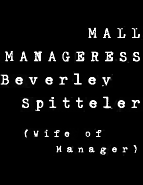 |
We see her interviewing staff for the Mall, obviously increasingly dismayed behind her veneer of innocence in the poor selection. | At the Mall opening perhaps facilitated by her husband's presence she commences her co-operative Mall fraud scheme. | With the increasing absense of her husband from mall affairs, we see the wife's ruthlessness more, running her little business fraud. | With chaos and madness all around her, the manageress digs her heels in and decides that she at least will come out of all this insanity showing a profit of some kind. | Ruthlessly using the police to squash the mall protest, she also ties up the loose ends of her business co-op fraud. Her rottenness revealed in her moment of triumph. | At her moment of victory she's arrested for fraud, though not the one she's guilty of. She ends up talking to the policeman, unable to reach even [him ??]. |
|
|
Mentioned but not seen, this character is built up as something of a brilliant monster and spoken of with some anxiety and misgiving. | Still not seen, but mentioned with increasing trepidation as we build up the suspense prior to his entrance. He worries people. | Finally revealed, the manic Market Analyst arrives in England and begins research. One of the first English people he meets is the Man From Neptune. |
Buys new computer, and thus has brief encounter with Poet that annoys him. Shortly after this, he crashes his car and lands in hospital. |
Being discharged from hospital. where he has a puzzling encounter with the builder, he in fact meets modem lover, although we don't realise. | His statistics are getting more unimaginable, and the protest meeting isn't pleasant, but there's some emotional thing upsetting him. Only we know it's the person he encountered on his modem. |
 |
Statistics out of rational control, the Analyst reaches a low ebb, thinking about the girl he's met (actually, by modem.) |
Having agreed to meet the modem lover at the opening, the analyst is stunned to find that it's the Poet. | Exploring his relationship with the Poet, particularly their political differences and similarities, is finally shocked to learn of a third party. | Continue to explore his strange relationship with the Poet, he discovers that the Kid is the third party and has grave doubts about what weird shit he's getting into here. |
Disturbed by developments with the kid, he nevertheless decides to ride it out. Witnessing the brutality at the Mall protest he decides to rebel and quits his job overnight. | The Analyst is shown the Mandelbrot Set by the kid, decides to trust his instincts. Consolidating relationship with Poet and Kid, he sets off for new life with them. |
|
|
Mentioned by not seen, perhaps in relation to Poet's arrival in town by train and the incident of the train window being broken. | The model railway layout is seen for the first time-- a perpetually sunny Thatcherite utopia. England as it was meant to be. | The story begins: happy, sunny, ridiculously banal, frighteningly normal, but with a cloud cast, just slightly over the perpetual afternoon. | Element of slight unease enters the cheery Thatcherite picture, perhaps as a piece gets misplaced when he's thinking about "disappearances" in Amin's Uganda. |
Lots of building going on as the layout enters a growth period. The cheery Thatcherite world responds to headlines in the real world. | We look at the tidy emotional lives of the miniature people. They're also being influenced by headlines and events in real life that affect the shopkeeper. | 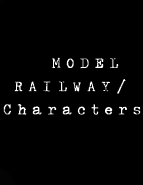 |
Still responding to the daily headlines, we see the perfect little Tory town more as Shopkeeper spends more time with it. | Responding to their creator's black mood, a sort of sadness and bitterness starts to pervade the perfect miniature world. | Neglected while the Shopkeeper throws himself into his work, the little world is put on hold, waiting anxiously in the dark of an extended night. | As the Shopkeeper loses his grip on the real world, he compensates by putting his world through a manic Thatcherite boom phase, full of flase assurance and optimism. | As the Shopkeeper's world falls apart, we see chaos and entropy hit the tiny town, as the emotional poverty beneath its surface is revealed. | As the Shopkeeper suffers his heart attack, he falls on the layout. The whole town suffers this terrible miniature apocalypse. |
|
Website designed by James Harvey. |
||||||||||||||

